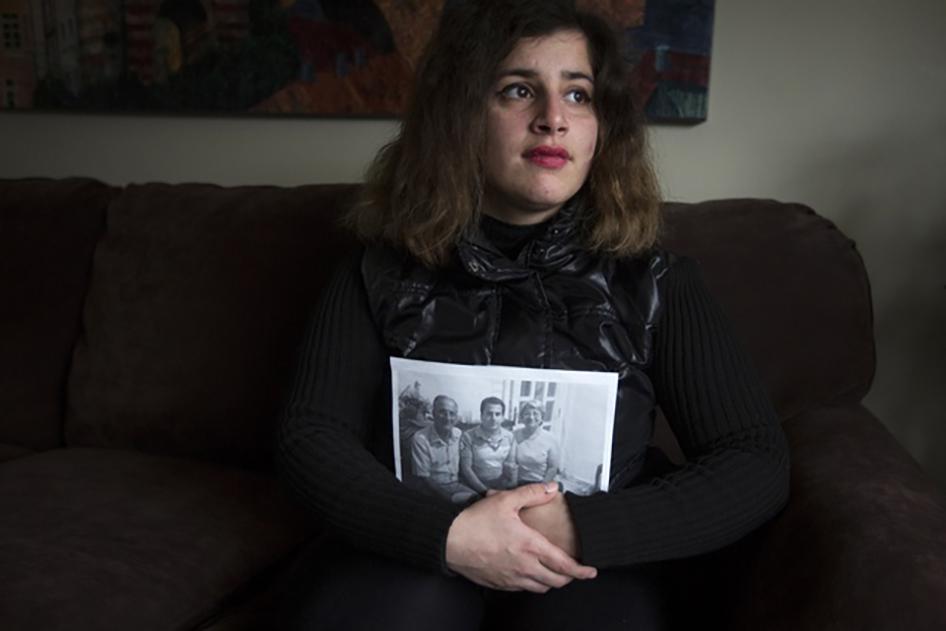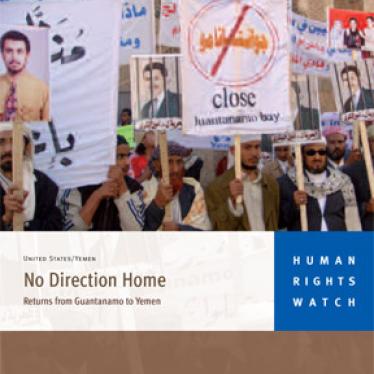(Washington, DC) – United States policies toward people seeking refuge or reunification with their families in the US during 2015 have been ill-considered, discriminatory, and harmful, Human Rights Watch said today in its World Report 2016.
“The Obama administration is sending messages of detention, discrimination, and distrust to families fleeing violence and persecution at home,” said Alison Parker, US program co-director at Human Rights Watch. “US policymakers should reverse course and stop treating undocumented arrivals as criminals.”
In the 659-page World Report 2016, its 26th edition, Human Rights Watch reviews human rights practices in more than 90 countries. In his introductory essay, Executive Director Kenneth Roth writes that the spread of terrorist attacks beyond the Middle East and the huge flows of refugees spawned by repression and conflict led many governments to curtail rights in misguided efforts to protect their security. At the same time, authoritarian governments throughout the world, fearful of peaceful dissent that is often magnified by social media, embarked on the most intense crackdown on independent groups in recent times.
In December 2014, the US opened its largest lock-up for arriving migrant families, a detention facility slated to house more than 2,400 parents and children – primarily asylum seekers from Guatemala, Honduras, and El Salvador. A year earlier, the US had only 85 beds specifically dedicated to detaining families. This new policy of detaining families from Central America in large numbers was in response to an influx of arrivals seeking refuge from uncontrolled gang violence in their home countries.
By year’s end, more than half of US governors had announced that they would oppose resettlement of refugees from Syria in their state, a reaction to the attacks in Paris in November. The US Congress subsequently debated several measures that would make it nearly impossible for Syrian and Iraqi refugees to be resettled in the US, despite a current system that involves multiple layers of vetting over a two-year period.
The US created a program in December 2014 to resettle refugee children from Central America directly from within their home countries with a parent legally residing in the US. Over 5,000 children applied for the program, but as of November 2015, only six Salvadoran children had qualified to enter the US, leaving thousands exposed to violence and persecution as they waited in their home countries to be processed under the program.
The Department of Homeland Security responded to several court rulings by announcing in June that it would end long-term detention for families that establish eligibility for asylum. However, it said it would continue to lock up many for an initial period of time, contrary to international standards restricting the detention of asylum seekers and children. At its borders, the US still used flawed expedited removal procedures that resulted in the return of many seeking protection.
The US continued to flout international law by indefinitely detaining without charge 107 men at Guantanamo Bay. The Obama administration transferred 20 detainees to their home or third countries in 2015, while Congress sought new legislative obstacles to such transfers and a complete ban on transfers to the US.
“President Obama has one more year to make good on his pledge to close down Guantanamo,” Parker said. “He should speed up the process despite congressional efforts to prolong the injustices at the facility.”
The US retained its status of holding the largest reported incarcerated population, with 2.3 million people in prisons and jails. About 12 million people annually cycle through US state and county jails.
There were several important human rights victories in the US in 2015, Human Rights Watch said. These include the US Supreme Court’s landmark recognition of same-sex marriage, which applies to every US state. Congress passed laws that reinforced the prohibition of torture and ended bulk collection of Americans’ phone records, though further reforms are necessary. Ending years of litigation, California has begun dismantling its use of indefinite solitary confinement.
“Deeply offensive and discriminatory comments on a range of issues by US presidential candidates point to renewed concern for human rights in the US in the coming year,” Parker said.






